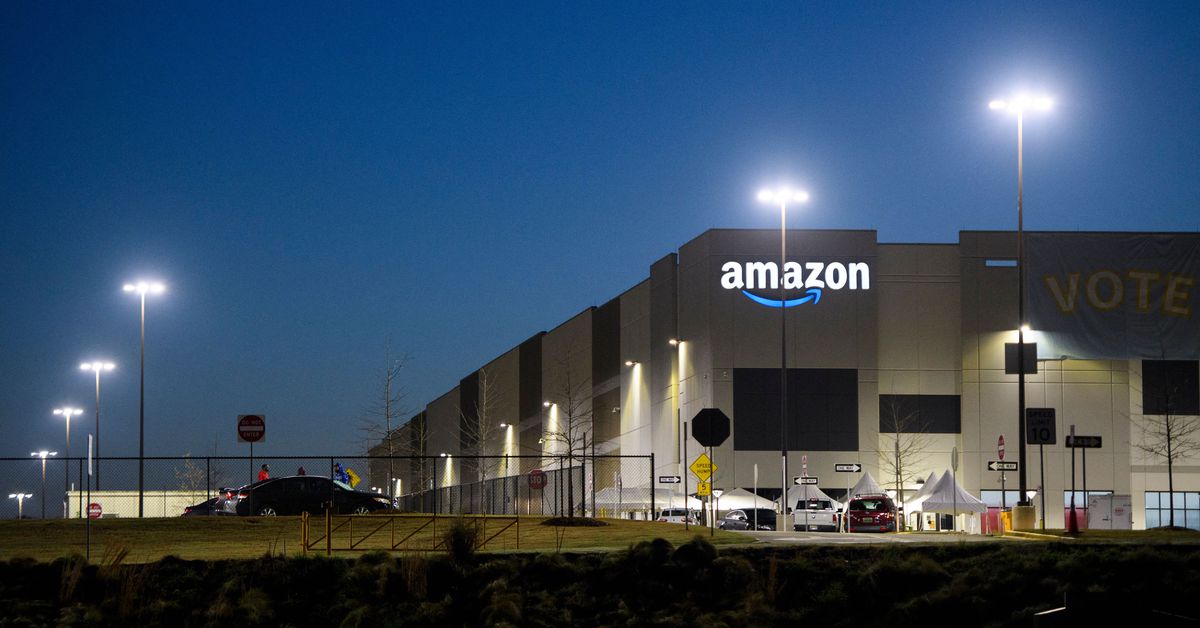
Amazon employees at a Bessemer, Alabama warehouse have voted against unionizing the facility’s roughly 5,800-person workforce.
The National Labor Relations Board (NLRB) has tallied over 1,700 “no” votes on the measure, more than half of the 3,215 ballots cast by employees at the BHM1 fulfillment center. Roughly 700 votes that have been counted voted in favor of the union, and approximately 500 of the total ballots were contested, mostly by Amazon.
Workers voted in February and March by mail over whether to join the Retail, Wholesale and Department Store Union (RWDSU), a possibility Amazon fought with anti-union meetings and other aggressive measures. BHM1 is only the second US Amazon facility to hold a union vote, following a far smaller group of warehouse technicians in Delaware. If workers had approved the union, it would have become the largest group to gain representation in a single NLRB election since 1991.
The RWDSU says it will appeal the election, requesting a hearing on whether the election results should be set aside. “We won’t let Amazon’s lies, deception and illegal activities go unchallenged, which is why we are formally filing charges against all of the egregious and blatantly illegal actions taken by Amazon during the union vote,” RWDSU president Stuart Appelbaum said in a statement on Friday. “We demand a comprehensive investigation over Amazon’s behavior in corrupting this election.”
Amazon has long resisted unionization and waged an aggressive campaign in Bessemer. The company brought in expensive anti-union consultants and held so-called “captive audience” meetings, which are mandatory workplace lectures where unions are presented in a negative light. Amazon ran a multi-pronged anti-union ad campaign, including Facebook ads, warehouse banners, signs in the break rooms and restrooms, mailers, and a constant barrage of text messages to workers. Supervisors frequently took workers aside to have one-on-one meetings encouraging workers to vote “no.”
These tactics are generally legal under US labor law, which significantly advantages employers. While Amazon enjoyed unfettered access to employees at the fulfillment center, organizers weren’t allowed inside and instead had to campaign in the parking lot, canvassing employees as they left. During the campaign, Amazon had the county change the timing on a traffic light leaving the warehouse parking lot, a measure the company said was taken to reduce congestion but which organizers say made their work harder.
One possible tactic the union could contest is Amazon’s push to have a mailbox installed at the warehouse site. Documents obtained by the union through a records request revealed Amazon requested the mailbox be installed as the voting process began. The NLRB had previously struck down Amazon’s request to host in-person voting at the warehouse, saying that in addition to presenting a COVID-19 risk, it would create the impression the company had a role in the election. Amazon has said the mailbox was intended to make voting easier, but the union says it had the potential to intimidate workers and that its instructions to have workers submit their ballots to it constituted improper ballot harvesting.
Amazon workers outside BHM1 have carried out more informal activism, including during the coronavirus pandemic, when employees claimed that Amazon had failed to reveal COVID-19 cases and provide adequate protective measures. In complaints obtained by news outlets, the NLRB determined that Amazon illegally retaliated against some of these workers. The NLRB also found that Amazon acted illegally in firing two workers who pushed it to address its climate impact.
Update 11:30AM ET: Updated vote count and added statement from RWDSU.
https://www.theverge.com/2021/4/9/22374540/amazon-union-vote-outcome-bessemer-alabama-rwdsu-bhm1

